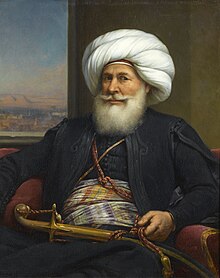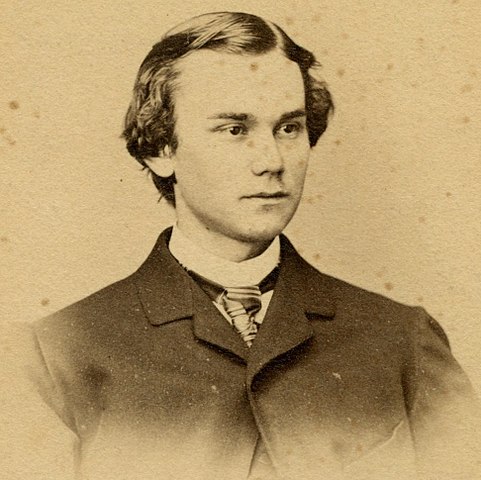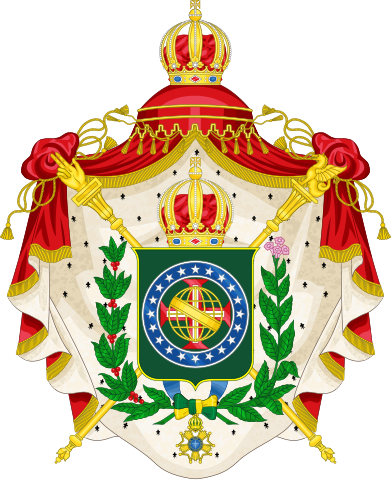The Eyalet of Egypt - Eyālet-i Mıṣr
The Eyalet of Egypt was gained by the Ottoman Empire following the Ottoman-Mamluk War (1516 - 1517). It would be a difficult province to rule for most of its history due to the continuing power and influence of the Mamluks, remaining semi-autonomous under the Mamluks until Napoleon's Egyptian Campaign. It would be after the expulsion of the French, that Muhammad Ali, the Albanian military commander of the Ottoman army in Egypt, would seize power in 1805, though it would remain under suzerainty of the Ottoman Sultan, with Muhammad Ali serving as the governor.
Muhammad Ali would be begin a series of reforms following his seizure of power. The first of these would be the confiscation of most lands from private individuals in return for tiny pensions, thus making through this method of land nationalization, Muhammad Ali became owner of almost all the lands of Egypt. As pasha he also attempted to reorganize his troops along European lines, though this would lead to a mutiny in Cairo in 1808, resulting in at the time an abandonment of this attempt to modernize his forces.
Muhammad Ali would also attempt several economic reforms. He would also create several state monopolies, creating several factories and began the digging of a new canal, the Mahmudiya, to Alexandria from the Nile in 1819, as the old canal had long since fallen into decay. This system of monopolies would fall following a series of treaties by the Porte with foreign powers, particularly the British. In 1822, Egypt would also begin the production of cotton in the Delta. The overland transit of goods from Europe to India and beyond and vis-versa resumed.
Muhammad Ali would channel much of this economic power into the development of military force. This would eventually lead to war between the Sultan and his Pasha, Muhammad Ali. The war officially began under the pretext of chastising the former mamluk Abullah Pasha of Acre, for refusing send back those that had previously fled Muhammad Ali's reforms. This war would leap to the forefront of the diplomatic world, as not only was it an existential crisis for the Ottoman Empire, especially following the reorganization of the Imperial Army and the disbandment of the Janissaries, but also the rising prominence of Egypt in the interests of various imperial powers, especially as a potential route to Asia - the other being via the Euphrates.

Muhammad Ali Pasha
Following the intervention of Russian troops, in the force of approximately 40,000 troops, and the subsequent intervention of British forces particularly in the Egypt and the Straights, the Convention of Kütahya was signed on May 14, 1833 in which the Sultan bestowed upon Muhammad Ali the pashaliks of Syria, Damascus, Aleppo and Itcheli, along with Adana. This would establish Muhammad Ali as the governor of a strongly autonomous state. However, the foundations of his authority were built on unstable foundations. These shaky foundations were revealed within a year when Muhammad Ali's system of government - particularly monopolies and conscription - had given rise to revolts among the Syrians, Druze, and Arabs. These initial revolts would be suppressed by Muhammad Ali in person, and though suppressed, their discontent would encourage Sultan Mahmud to seek revenge.
In 1839, the sultan would order his army based in Reshid to advance over the Syrian frontier. These forces would ultimately be routed under the sultan's son Ibrahim. However, this defeat would inspire the Oriental Crisis, resulting the powers of the United Kingdom, Prussia, the Austrian Empire and Russian Empire, joining forces with the sultan. The combined forces would make quick work of Muhammad Ali's forces.
This would result in various conditions being placed upon Muhammad Ali, although the governorship of the Eyalet of Egypt was made hereditary for his dynasty. Restrictions included the stripping him of the governorship of all territories outside of Egypt and Sudan, the reduction of his army to 18,000 men, a restriction against keeping a fleet of any kind. Furthermore, he would be required to present an annual tribute of 376,000 £. He would no longer be a figure in European politics, he would however, continue to concern himself with the governorship of the greatly diminished Eyalet.
Muhammad Ali's rule would be followed by the short rule of his son Ibrahim. Which was subsequently followed by the short reign of his nephew Abbas, who would end the monopolies and build a railroad between Alexandria and Cairo, before being murdered in 1854 by two of his slaves. He would in turn be succeeded by Said Pasha, who was weak in mind and physical health. It was under Said that the Frenchman Fredinand de Lesseps would be granted a concession for the construction of a canal across the Suez.
((image edits))
Last edited:


























